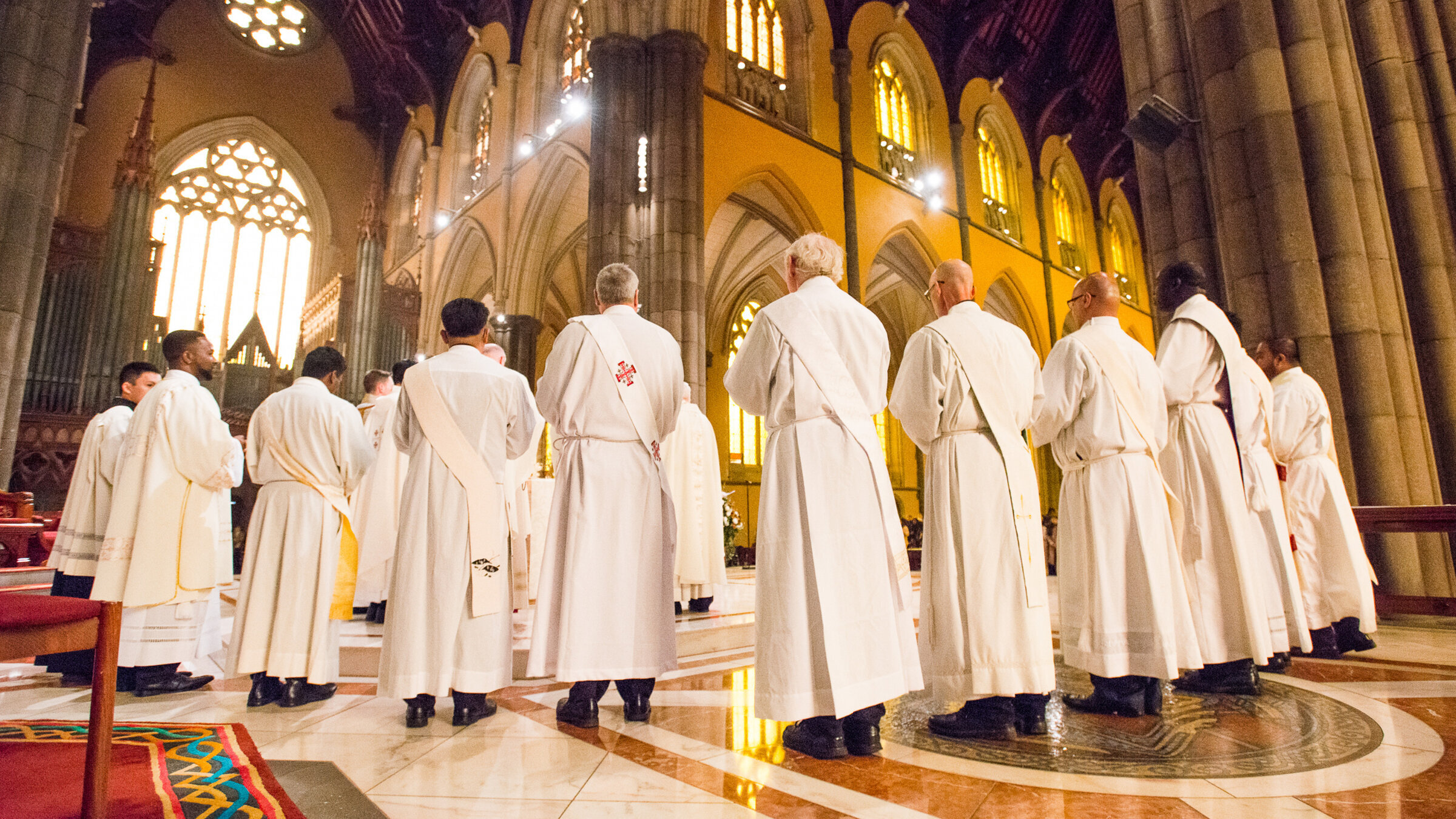The Second Vatican Council reinvigorated the ancient order of deacons, reinstituting the permanent diaconate. By calling and ordaining deacons the Church is saying something fundamental: that service is at the heart of the human and divine mystery. Deacons are a permanent feature of the Church and the Church is not fully herself wherever deacons, priests or bishops are lacking. The gift and calling of the deacon is not for his own sake but for building up the Church in particular ways:
- To bring God’s Word to believer and unbeliever alike;
- To preside over public prayer, to baptise, to assist at marriages and bless them;
- To give viaticum to the dying, and to lead the rites of burial;
- Once he is consecrated by the laying on of hands, he will perform works of charity in the name of the bishop; and
- To celebrate faithfully the liturgy of the hours for the Church and for the whole world.
The deacon is the Church’s service sacramentalised and a sign of the Lord who came not to be served but to serve.
An ordained deacon will be appointed to one parish and may be asked to prepare parents and candidates for Baptism, couples for marriage and conduct funerals. As servants of the Word of God they will proclaim the Gospel in the liturgy, preach the homily, pray the prayer of the faithful and participate in sacramental programs. As servants of charity ordained deacons can be chaplains in hospitals, prisons, universities, armed services and visit the sick.
Suitable applicants will be required to complete a tertiary degree in theology as well as participate in regular formation sessions offered through the Archdiocese of Melbourne over the four or more years of study. Deacons must also be willing to take part in formation and mentoring opportunities after ordination.
If unmarried, men must be at least 25 years of age when they are accepted and no more than age 60 at time of ordination. If married, at least 35 years of age, married for at least seven years and be no more than age 60 at time of ordination. Applicants must also have the full support of their spouse and family, and their parish priest.
The idea to renew the diaconate came from many parts of the world during the preparation periods. The bishops at the Council did not see it as a solution to a shortage of priests, but as a way to show clearly the fullness of the ordained ministry of deacon, priest and bishop which exists to represent Christ and to serve the life of the Church. A major impetus was the realization that the horrors of the Second World War called for a renewal of the Church’s mission, a renewal that must include the ordained ministry of the diaconate.
There is a maxim that says, “Grace builds on nature”. In many cases, a person’s diaconal qualities have been observed and experienced by friends, family and members of his parish community; in these cases, it is often some of these people, or the local priest, who suggest to a man that he ought to consider the possibility of the diaconate. Perhaps a man has become interested in the diaconate because of his own experience with deacons or through something he has read. In every case, this vocation is a share in the evangelization for which the bishop is responsible. He calls the deacon, confers the Spirit upon him in diaconal ordination, and appoints him to the canonical office where he will serve.
Mature men of good health, active in parish life and informed in their Catholic faith: open to personal, spiritual, theological and ministerial formation over at least four years
No married man may be ordained without the freely given consent of his wife and, naturally, the parents would take into account the welfare of their children.
Very carefully! Most married people already understand the importance of balance in their own family and work relationships. Becoming a deacon adds another set of relationships into the equation. It is never a question of one set of relationships being more important than another is. All of them are critical, and sometimes one relationship takes precedence over another.
The time commitment is flexible but usually 6-8 hours a week.
While there are many things that deacons may do that can assist in the pastoral care of the church, they are not substitutes for priests. The policy in our Archdiocese is that a priest will be the canonically appointed leader of every parish.
No, a deacon is not ordained to the priesthood. In the absence of a priest the deacon may preside over the community’s prayer; in fact the deacon is the logical person to do so.
